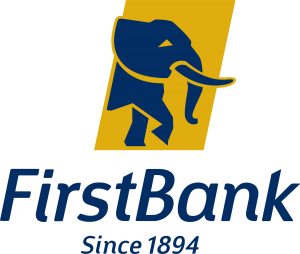Bank
Fidelity Bank deepens Exporters’ capacity in Abuja
Fidelity Bank deepens Exporters’ capacity in Abuja
Leading financial institution -Fidelity Bank Plc – has once again demonstrated its devotion to boost the volume of non-oil exports in the country as it recently hosted entrepreneurs within the North-Central geopolitical zone of Nigeria to the 13th edition of its Export Management Programme (EMP 13) in Abuja.
The event which was a five-days intensive programme, held between Monday, 18 and Friday, 22 July 2022 at Novare Central, Wuse Zone 5 in the nation’s capital. It featured insightful presentations from leading experts in the nation’s export industry including regulators, academics and businessmen.
Speaking on the EMP, the Divisional Head, Export and Agriculture, Fidelity Bank Plc, Isaiah Ndukwe said, “We launched the EMP in 2016 with the objective of helping Nigerian businesses pivot to exports. Since then and in partnership with the Lagos Business School and the Nigerian Export Promotion Council (NEPC), we have hosted 12 editions of the training. We are delighted by the feedback from customers and non-customers that have benefited from the initiative especially the uptick in their business performance after participating in the programme.”
It would be recalled that Fidelity Bank launched a series of sensitization programmes to drive non-oil exports across the country in February this year. Tagged, “The CBN RT200 FX Sensitisation Seminar”, the workshops featured presentations from experts in the exports space on how businesses can take advantage of the Central Bank of Nigeria’s (CBN) drive to raise $200billion in foreign exchange earnings in the next three to five years through non-oil exports. Till date, the bank has hosted the seminars in Kano, Akure, Jos and Benin-City -in partnership with the Edo State Investment Promotion Office (ESIPO) and GIZ.
“Just like our CBN RT200 FX Sensitisation seminars, our EMP initiative is driven by our vision of establishing exports as a strategic business pillar given the immense opportunities it bodes for our customers and the nation’s economy. We have therefore become the go-to bank for established and budding export businesses. Participants in EMP 13 have learnt how to list their products on global e-commerce platforms like Amazon, the necessary documentation for exports, how to take advantage of export-oriented policies, amongst a host of insightful discussions”, explained Ndukwe.
Making a case for Nigerian businesses to embrace non-oil exports at the opening ceremony of the training, Dr Ezra Yakusak, Executive Director/CEO of the Nigerian Export Promotion Council (NEPC), who was represented by Mr Babatunde Falake, Director, International Export Office, NEPC said, “Recent developments in our national economy and indeed the global economy have made it clear to us that more emphasis should now be laid on export of our vast resources if we must survive as a nation. It is unfortunate that Nigeria, having been blessed with resources in agriculture, solid minerals, entertainment industry, creative arts, Information and Communication Technology, fashion and of course manufacturing, has continued to rely on export of crude oil as the major source of foreign exchange.”
The well attended capacity development programme also feature insightful discussions facilitated by officials of the Central Bank of Nigeria (CBN), Nigerian Customs Service (NCS) as well as excursions and networking sessions.
Fidelity Bank is a full-fledged commercial bank operating in Nigeria with over 6.5 million customers serviced across its 250 business offices and digital banking channels. The bank was recently recognized as the Best SME Bank Nigeria 2022 by the Global Banking & Finance Awards. The bank has also won awards for the “Fastest Growing Bank” and “MSME & Entrepreneurship Financing Bank of the Year” at the 2021 BusinessDay Banks and Other Financial Institutions (BAFI) Awards.
Bank
Alpha Morgan to Host 19th Economic Review Webinar

Alpha Morgan to Host 19th Economic Review Webinar
In an economy shaped by constant shifts, the edge often belongs to those with the right information.
On Wednesday, February 25, 2026, Alpha Morgan Bank will host the 19th edition of its Economic Review Webinar, a high-level thought leadership session designed to equip businesses, investors, and individuals with timely financial and economic insight.
The session, which will hold live on Zoom at 10:00am WAT and will feature economist Bismarck Rewane, who will examine the key signals influencing Nigeria’s economic direction in 2026, including policy trends, market movements, and global developments shaping the local landscape.
With a consistent track record of delivering clarity in uncertain times, the Alpha Morgan Economic Review continues to provide practical context for decision-making in a dynamic environment.
Registration for the 19th Alpha Morgan Economic Review is free and can be completed via https://bit.ly/registeramerseries19
It is a bi-monthly platform that is open to the public and is held virtually.
Visit www.alphamorganbank to know more.
Bank
Separating Fact from Confusion: What Nigerians Need to Know About the 7.5% VAT on Banking Service Fees

In recent weeks, digital-banking customers and social media, especially on Twitter have raised concerns about deductions labelled as “VAT” on transfers and other charges.
Some dangerously false narratives, which when you take a critical look, you’ll clearly see that they have been orchestrated and sponsored by malicious elements, have given the impression that the 7.5% Value Added Tax (VAT) is a new or arbitrary charge introduced by fintechs, or that it applies to the amounts customers send. These claims are misleading and deserve careful clarification which is the purpose of this piece.
First, it’s important to understand how VAT works in Nigeria’s financial sector today. VAT on fees and charges for financial services has long been part of Nigeria’s tax system. The then Federal Inland Revenue Service (FIRS) had issued information circulars on March 31, 2021 where it stated that VAT on Financial Services (Circular No. 2021/04) that most fees, commissions, and charges by financial institutions (banks, insurance companies, brokers) are subject to 7.5% VAT.
This justifies a recent advertorial the Nigeria Revenue Service (NRS) which stated unequivocally that VAT was not newly introduced on banking service charges by recent tax reforms, and that it did not impose a new tax obligation on customers in that regard.
However what was left unsaid in that publication was that on the 12th of December, the tax agency had written to all financial institutions and payment gateways based on past meetings with operators that following from the new Tax Act, they were reminded of their mandatory obligations to collect, deduct and remit VAT at the prescribed rate.
The Agency then gave an 18- day grace period to all players to configure and align their systems while directing full compliance with the directive with effect from January 19, 2026. And so, some fintechs sent messages to their customers in the spirit of clarity and transparency.
It must be said that what has changed is that in a bid to widen the tax net, microfinance banks and fintechs who were not obligated to deduct and remit said VAT before now, have now become compelled to do so. The enforcement and standardised collection of VAT across banks and fintech platforms including mobile transfers, USSD transaction fees, and card issuance fees with compliance deadlines issued by tax authorities. So why anyone would vilify any financial institution obeying the laws of the land beats my imagination.
For those who have raised questions around transparency and wrongly suggesting that fintechs are suddenly imposing new, unexplained costs on users – as it has been explained above, this is a matter of regulatory compliance, not a lack of transparency or customer exploitation. These VAT deductions are not new fees created by the companies themselves, and providers are not arbitrarily raising their prices.
In closing, two things that everyone must bear in mind as we move forward in this new tax climate – all stakeholders including fintech platforms and regulators must communicate better and clearly. Nigerians must refrain from peddling unsubstantiated claims and malicious narratives, it has no benefits for anyone and erodes trust in systems.
Bank
FirstBank Introduces Exclusive 500-Seater Bleacher at Carnival Calabar & Festival 2025

FirstBank Introduces Exclusive 500-Seater Bleacher at Carnival Calabar & Festival 2025
Lagos, 26 December 2025 – FirstBank, West Africa’s premier financial institution and financial inclusion services provider, has officially announced its sponsorship of the Carnival Calabar & Festival 2025, unveiling a landmark addition set to redefine the carnival experience — the first-ever private premium seating area at the event.
The highlight of FirstBank’s participation is the construction of a 500-seater premium bleacher, designed to provide comfort, safety, and an elevated viewing experience for carnival enthusiasts.
Speaking on the sponsorship, the Acting Group Head Marketing and Corporate Communications, FirstBank, Olayinka Ijabiyi, noted that the carnival aligns with the Bank’s First@Arts initiative, a platform dedicated to supporting the creative arts value chain across Nigeria. He said, “We recognise the transformative power of the arts, including carnivals, in inspiring people and strengthening national unity. For more than 131 years, we have supported platforms that promote self-expression, social reflection and cultural exchange. Our investment in the Carnival Calabar & Festival demonstrates our commitment to preserving the nation’s rich cultural heritage through First@Arts.”
“As part of our sponsorship this year, we are introducing the first-ever private 500-seater premium bleacher to further elevate the carnival experience. This exclusive seating is designed to provide exceptional comfort and an unforgettable viewing experience for attendees,” Ijabiyi added.
The Chairman of the Cross River State Carnival Calabar Commission, Gabe Onah, also commented on FirstBank’s sponsorship. “FirstBank’s involvement is a strong demonstration of private-sector support for culture and tourism. This partnership not only enhances the overall quality of the carnival but also strengthens its global appeal,” he said.
The Carnival Calabar & Festival 2025 is officially marketed by Okhma Global Limited, the appointed Official Marketer responsible for brand partnerships, promotional engagements, and ticket sales. Okhma Global Limited has partnered with the Cross River State government in delivering Carnival Calabar & Festival for over ten years, playing a key role in strengthening the carnival’s commercial growth and global visibility.
-

 celebrity radar - gossips6 months ago
celebrity radar - gossips6 months agoWhy Babangida’s Hilltop Home Became Nigeria’s Political “Mecca”
-

 society6 months ago
society6 months agoPower is a Loan, Not a Possession: The Sacred Duty of Planting People
-

 society5 months ago
society5 months agoReligion: Africa’s Oldest Weapon of Enslavement and the Forgotten Truth
-

 news6 months ago
news6 months agoTHE APPOINTMENT OF WASIU AYINDE BY THE FEDERAL GOVERNMENT AS AN AMBASSADOR SOUNDS EMBARRASSING









